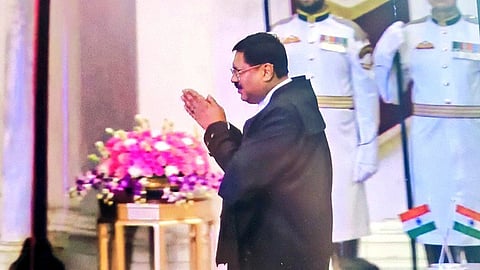
- Latest Legal News
- News
- Dealstreet
- Viewpoint
- Columns
- Interviews
- Law School
- Legal Jobs
- हिंदी
- ಕನ್ನಡ

As Chief Justice of India BR Gavai demits office, India stands at a moment that invites both reflection and gratitude. His tenure as the Chief Justice of India was marked not by spectacle, but by a quiet, unwavering commitment to the foundational values of the judiciary - fairness, restraint, clarity and dignity.